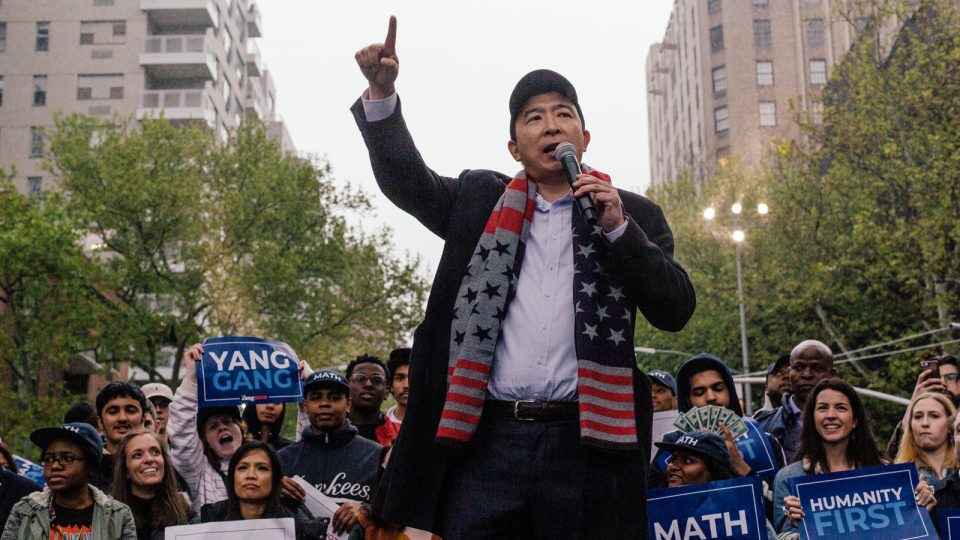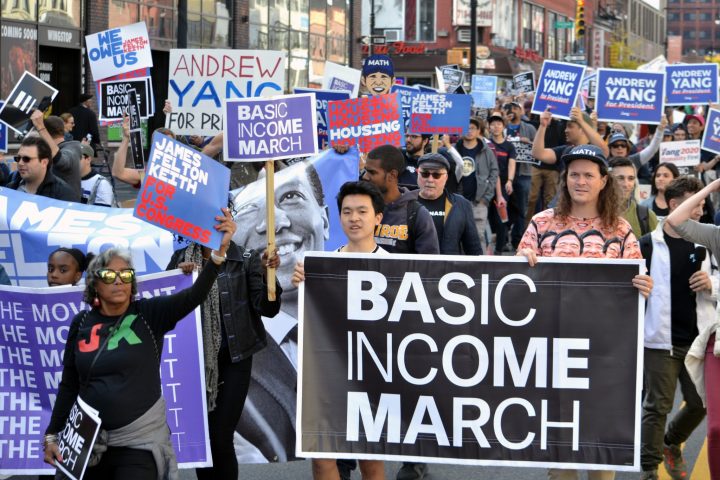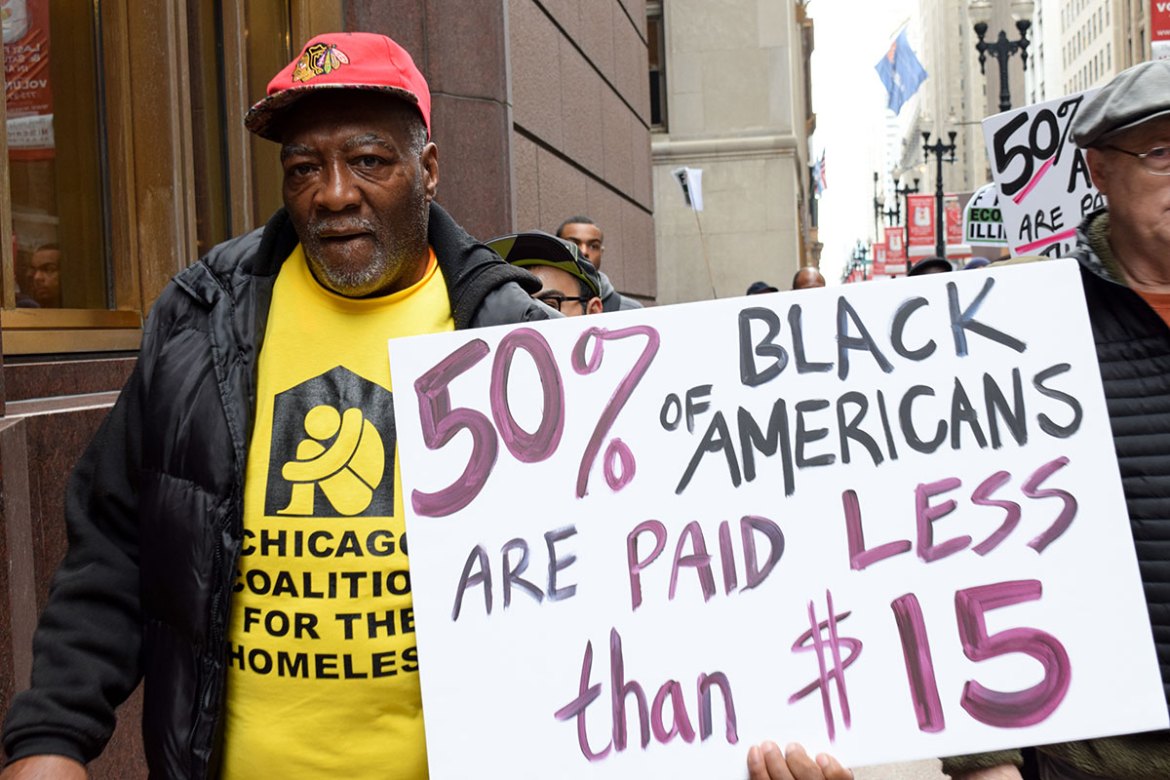A PRESCRIPTION FOR AMERICA’S PANDEMIC-INDUCED RECESSION
By C.C. Campbell-Rock
During his presidential bid, Andrew Yang advocated for a Universal Basic Income for Americans. In doing so, he set conservatives’ hair on fire. The very notion of giving out free money sent them into a tailspin.
Yang decided to launch his own basic income demonstration. He promised to give $1,000 per month, for 12 months. During the 2019 presidential debate, he announced that he’d give away $1,000 per month to 10 randomly selected families.

Yang is not the only person proposing that the U.S. implement a UBI nationwide. Interestingly, a slate of wealthy individuals has endorsed such a program.
Tech billionaire Mark Zuckerberg, economist Milton Friedman, entrepreneurial inventor Elon Musk, Founder & CEO Of SolarCity, Tesla, Space X, and self-made multimillion Stewart Butterfield agree with Yang.
“We should explore ideas like universal basic income to give everyone a cushion to try new things,” Zuckerberg, Facebook’s CEO, and a Harvard University dropout, said during a visit to Alaska, which has a state-run basic income program. Zuckerberg said the state’s dividend-sharing program “provides some good lessons for the rest of the country.”
Butterfield, co-founder of the workplace chat program Slack, tweeted his support for Universal Basic Income. It “doesn’t have to be much but giving people even a very small safety net would unlock a huge amount of entrepreneurialism,” said Butterfield. “If you can’t afford to take any risks, you generally won’t take any risks.”
“There is a pretty good chance we end up with a universal basic income, or something like that, due to automation,” Elon Musk said.
RELATED: REPARATIONS GOOD FOR AMERICA
VARIOUS COUNTRIES ARE CONDUCTING BASIC INCOME TRIALS
Some 130 countries, from Mexico to Italy to Uganda, have instituted conditional cash transfers. Some may require recipients to send their kids to school or go for health checkups.
Kenya, where a universal basic income (UBI) experiment is underway; Iran, which has a nationwide unconditional cash transfer program are offering money to small groups of a few hundred or a few thousand people, not an entire population.
Canada is experimenting with a three-year universal income program. It’s giving 4,000 Ontario residents living in poverty C$17,000 a year or C$24,000/couple. The government expects it will cost C$50 million annually.
In 2017, Finland gave 2,000 unemployed people 560 euros a month for two years, even if they found work. The recipients said it reduced stress and gave them more incentive to find a good job or start their own business.
Scotland has committed 250,000 pounds to four pilot areas.26 research into a program that pays every citizen for life. Retirees would receive 150 pounds a week. Working adults get 100 pounds and children under 16 are paid 50 pounds a week.

SOME U.S. CITIES ARE CONDUCTING BASIC INCOME DEMONSTRATIONS
Basic Income trials are ongoing in several American cities with promising results.
In 2019, Stockton Mayor Michael Tubbs launched The Stockton Economic Empowerment Demonstration, or SEED, a basic-income pilot program which provides unconditional cash transfers of $500 per month to individuals. 125 people who live at or below the median income line (around $46,000), nearly half of whom are working full- or part-time, were chosen to participate in the basic income trial.
“In this country, we have an issue with associating people who are struggling economically and people of color with vices like drug use, alcohol use, gambling,” said Stockton Mayor Michael Tubbs. Tubbs, 29, is Stockton’s first black mayor. “I thought it was important to illustrate folks aren’t using this money for things like that. They are using it for literal necessities,” Tubbs told Linnea Feldman Emison in an interview for The New Yorker.
The program was scheduled to end this summer. But May 2020, Tubbs extended SEED through January 2021, in response to the coronavirus pandemic.
Sam Altman, a self-made multimillionaire, and president of top Silicon Valley start-up shop Y Combinator launched a basic income experiment in Oakland, California. Select residents are receiving cash handouts to see how the money affects individuals’ behavior. Y Combinator has hired a program director and the study is underway.
“Eliminating poverty is such a moral imperative and something that I believe in so strongly,” Altman told CNBC Make It. “There’s so much research about how bad poverty is. There’s so much research about the emotional and physical toll that it takes on people.”
DOES UNIVERSAL BASIC INCOME PROGRAM COMBAT POVERTY OR MAKES PEOPLE LAZY?
“Proponents of basic income argue it’s the best way to end poverty. Some also say it’ll help society cope with a coming era of automation-induced joblessness. And the evidence so far suggests that getting a basic income tends to boost happiness, health, school attendance, and trust in social institutions, while reducing crime,” according to news reports.
“Critics worry that it will disincentivize work, cheating economies out of productivity and cheating individuals out of a strong work ethic. Some think it is unaffordable for the government to pay every citizen enough to live on.”
The Stockton experiment and others dispel critics’ beliefs that giving recipients no-strings attached basic income disincentivizes recipients to look for work or that people getting free money will use it for drugs and unnecessary items. The evidence doesn’t support those assertions. The program’s preliminary data on recipients’ spending habits shows that most are spending the money on food, clothes, and utility bills, according to VOX.
Tubbs doesn’t see a basic income as radical but rather as “This generation’s extension of the safety net,” following in the path of things like Social Security, child-labor laws, weekends, and collective bargaining.
“I’m excited about just showing what people do with increased economic opportunity,” he says. “Being able to devote their time full time as a parent or caregiver, going back to school to reskill, investing in a new business. I know the ingenuity of some of the folks in my city.”
SOME AMERICAN STATES HAVE RUN SUCCESSFUL BASIC INCOME PROGRAMS FOR YEARS
Since 1982, Alaska has given each citizen an annual check. The program is said to be an effective way to wipe out extreme poverty. The Alaska Permanent Fund money comes from oil revenues. Payments can range from $2,000 per person to $1,000 depending on oil prices., VOX reported.
“Economists investigated whether the payment was leading people to work less and found that “The dividend had no effect on employment” overall. (It has, apparently, had an effect on fertility, encouraging families to have more kids. It’s also had some unexpected effects on the state’s politics.).”
In North Carolina, the Eastern Band of Cherokee Indians Casino Dividend goes to every tribal member, no strings attached since 1997. Each person gets on average somewhere between $4,000 and $6,000 per year. Economists found that it doesn’t make them work less. It does lead to improved education and mental health, and decreased addiction and crime.
UBI PROPOSALS HAVE BEEN AROUND SINCE THE 16TH CENTURY BUT THE PANDEMIC IS PROMPTING A SECOND LOOK
Thomas Paine wrote about UBIs in the 1797 pamphlet Agrarian Justice. In it he said cultivation of the land was “one of the greatest natural improvements ever made,” but also displaced people, robbing them of “their natural inheritance” and creating “a species of poverty and wretchedness that did not exist before.”
“To rectify that disinheritance, Paine argued everyone was owed a yearly sum: 15 pounds for those between the ages of 21 and 49, and 10 pounds for those aged 50 and older,” Billie Binion wrote in Reason Magazine.
Binion drew a parallel between Yang’s Universal Basic Income proposal and Paine’s. “Yang’s UBI is essentially a modern-day, technologized version of Paine’s proposal. Instead of agricultural practices dispossessing American citizens, Yang blames big tech companies, which he says are automating jobs into oblivion. Paine called his payout the “Citizens Dividend,” while Yang nicknamed his stipend the “Freedom Dividend.”
A NATIONAL UBI CAN STABILIZE THE U.S. ECONOMY DURING THE PANDEMIC
Universal Basic Income (UBI) has been proven to reduce systemic poverty and to boost the economy. It has allowed part-time workers to return to school, start businesses, and take care of their families. It’s an idea whose time has come during this pandemic. The CARES ACT’s PPP (Payroll Protection Program) included was a UBI cash handout that benefited displaced workers and employers. Congress should pass the Heroes Act but also provide all Americans with a UBI. It’s a remedy for the pandemic recession, a way to end extreme poverty, and a process for middle class growth.

